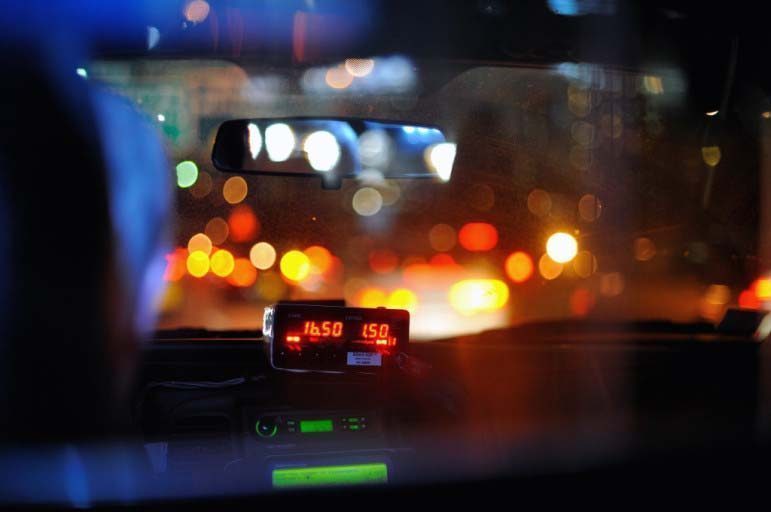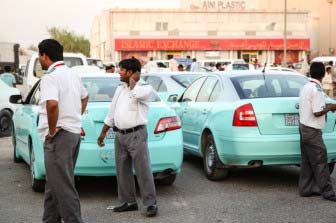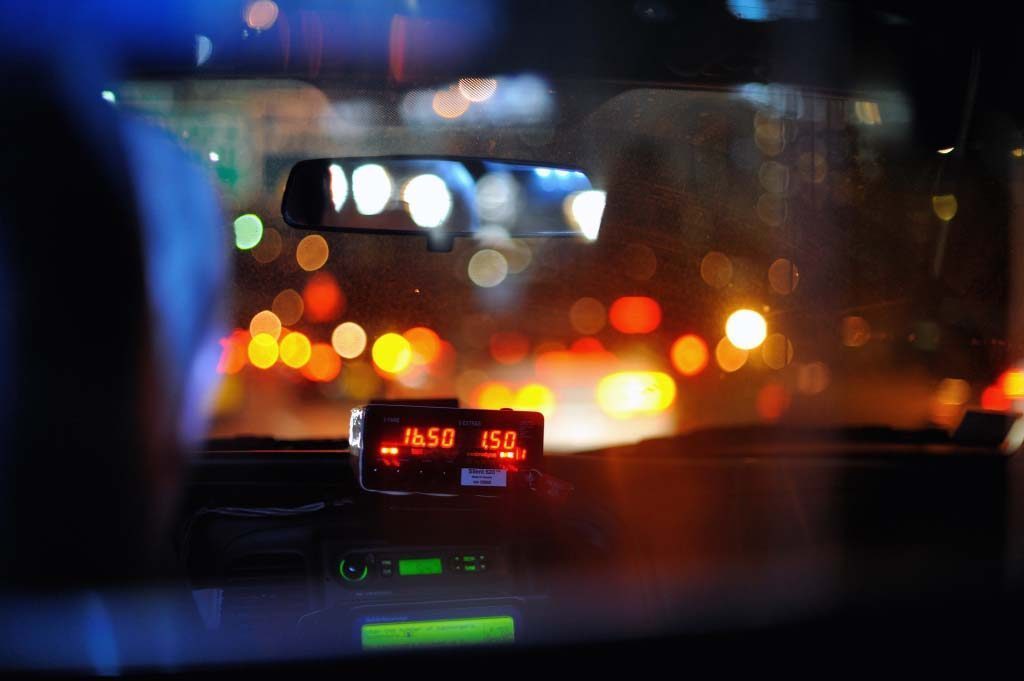
Hundreds of taxi drivers in Qatar have started receiving monthly salaries and no longer need to pay their employers a daily cab rental fee, the head of Qatar’s state transportation firm Mowasalat has said.
Previously, these drivers needed to collect more than QR200 in fares during their shift to compensate Mowasalat for the use of the car before they could earn any money for themselves that day.

Many drivers have said this requirement often compelled them to turn down smaller fares and tamper with meters to make enough money to cover their rental costs and debts.
This contributed to a steady stream of complaints about poor customer service from Qatar residents who used the taxis.
Mowasalat runs one of five taxi franchises currently operating in Qatar.
Speaking to Doha News earlier this month on the sidelines of the Qatar Transport Forum, CEO Khalid Nasser said that the company started paying its drivers a base monthly salary of QR1,200 on July 1.
He added that his employees are receiving bonuses of between QR50 and QR1,400 a month, depending on how much money in fares they bring in.
“Our drivers are more than happy. We have no issues,” Nasser said.
Driver’s reaction
Speaking to Doha News this month, several Karwa drivers have said they are pleased that Mowasalat has abandoned the rental system for its drivers, because it made it difficult to save money.
“Even after working for five years, my bank balance is zero,” said one driver, who hails from the Indian state of Kerala.
He said he previously paid QR265 to Mowasalat for a 12-hour taxi rental. The driver added that it was difficult to recoup this during a single shift, which would lead to arguments with customers and requests, for example, that they pay QR15 for a QR10 fare.
While a regular salary is welcome, the man said it’s still insufficient. Drivers don’t have cooking facilities in their company-provided accommodation, which means they’re often forced to buy takeaway food.
Additionally, their pay is often docked for traffic violations as well as returning a car with scratches or dents.
“Being a taxi driver is not a good job,” he said. “Qatar is great, but the company isn’t good.”
Franchises
Meanwhile, drivers employed by Mowasalat’s Al Million franchise are still required to rent cars from their employer.

Some of the company’s employees staged a rare two-day strike in Qatar, where such labor action is illegal, in 2014 over a dispute about the company’s rental model.
One driver, a father of three from Nepal, told Doha News last week that he pays QR300 to use a newer car for 24 hours and QR250 for an older model. A 12-hour day shift rental costs drivers QR220, he added.
When Doha News spoke to the driver, he said he had only collected QR30 in fares during his first four hours of work.
“With the increasing traffic, it’s becoming harder and harder to make ends meet. So we have to resort to backhanded methods, (such as) making deals with customers, changing metered fares (and) taking on side customers,” he said.
“If we don’t make the daily rental fees, sure, we pay out of pocket. But how many days can we do that for? One day? Two days? Beyond that, no one can afford (it).”
The man said he was promised a monthly salary of QR1,200 in a job offer letter he received in Nepal, but was moved to the rental model three months after arriving in Qatar.
He said that objecting would be pointless.
“We can’t say anything. Everyone is tired of this, but if we complain, we risk going home. We have families to support. We can’t afford to lose our jobs.”
Executives at some of Qatar’s new cab franchises, such as the yellow-roofed Cars Taxi, have acknowledged that the rental model can be a source of conflict with drivers and instead launched operations with a compensation system that pays employees a base salary plus bonuses.
Customer service
In recent years, Mowasalat has taken several steps to improve passenger service, including setting up a unified call center for booking taxis.

Nasser said the call center is receiving some 15,000 calls a month and that customers are generally waiting no more than 30 minutes before a cab arrives.
This has been enabled in large part by new GPS-enabled meters, which allow dispatchers to more efficiently assign taxis to customers.
The devices are also supposed to be tamper-proof and have led to a 50 percent drop in customer complaints, according to Mowasalat.
However, some drivers still attempt to work around the system by obscuring the on-screen fare amount.
Thoughts?







